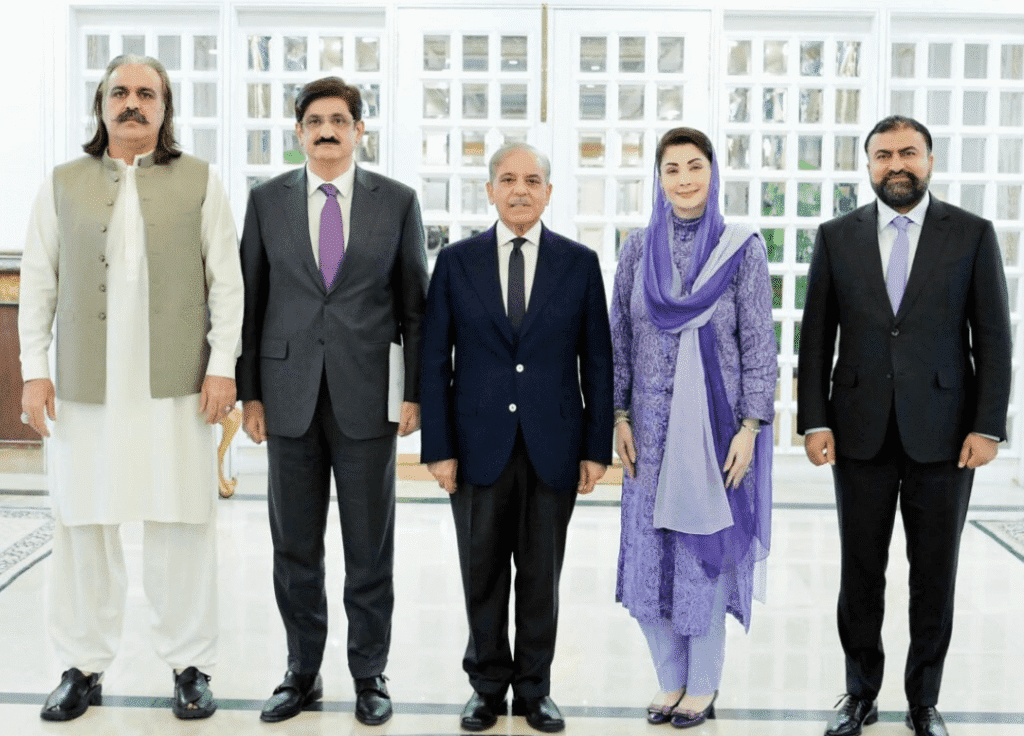Council of Common Interests Upholds Unity, Condemns Indian Actions Over Pahalgam Incident
In a significant decision, the Council of Common Interests (CCI) on Monday rejected the federal government’s proposal to construct new canals from the Indus River. The move overturned a previous approval by the Executive Committee of the National Economic Council (ECNEC) in February, reaffirming the council’s stance on the importance of provincial consensus in such matters.
“No new canals will be constructed without mutual understanding and consensus among all provinces,” the CCI stated following a meeting chaired by Prime Minister Shehbaz Sharif. The decision comes after the Sindh government raised concerns about the project’s potential impact on water distribution, particularly its effect on Sindh’s water share.
The CCI also took strong exception to India’s unilateral actions following the Pahalgam incident, condemning them as illegal and irresponsible. In a unified voice, the provincial chief ministers expressed national solidarity and support for Pakistan’s right to defend its water interests, especially in light of India’s suspension of the Indus Water Treaty.
The high-level meeting, convened at the request of the Sindh government, saw participation from all four provincial chief ministers, along with Deputy Prime Minister Ishaq Dar, Defence Minister Khawaja Asif, and other senior officials. The forum also welcomed a Senate resolution condemning India’s actions, reinforcing Pakistan’s commitment to protecting its sovereignty and water rights.
In response to the concerns raised by the Sindh government and others, the CCI decided to withdraw provisional approval for the canal construction project and announced the formation of a federal-provincial committee. This committee will work on long-term agricultural and water management solutions that align with the 1991 Water Accord and the 2018 Water Policy.
“We are committed to resolving all water-related disputes amicably, ensuring that the concerns of every province are addressed with due diligence,” the statement added.
The decision to halt the canal project comes amid widespread protests in Sindh, where nationalist groups and the provincial government voiced fears that the project would deprive the region of its rightful share of water. The proposed six canals, estimated to cost Rs 211.4 billion, faced strong opposition, with sit-ins and blockades at key highways in Sindh disrupting the flow of goods and causing shortages of essential supplies, including food and petrol.
Khyber Pakhtunkhwa (KP) Chief Minister Ali Amin Gandapur welcomed the decision, expressing satisfaction with the emphasis on resolving issues through mutual understanding. He also confirmed that KP’s demands, including the recognition of tobacco as a formal crop and a review of the National Finance Commission (NFC) Award, would be added to the next CCI agenda.
While PM Shehbaz Sharif reassured PPP Chairman Bilawal Bhutto Zardari that no new canals would proceed without consensus, protests on the ground have only intensified, reflecting deep-rooted distrust and regional tensions over water distribution. The ongoing unrest underscores the challenges of balancing federal and provincial interests in managing Pakistan’s water resources.
